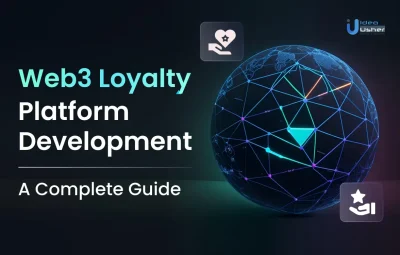You’ve got the laptop, the passport, and the dream. You’re building a business from a beach in Bali or a café in Lisbon. But here’s the thing no one tells you in the Instagram ads: your legal structure isn’t just paperwork. It’s the foundation of your entire nomadic operation. Get it wrong, and you could face a tidal wave of tax headaches, legal liabilities, and operational nightmares.
Let’s be honest, it’s not the sexy part of the journey. But getting it right? That’s what gives you the freedom to truly roam without looking over your shoulder.
Why Your “Home Base” Matters More Than You Think
As a digital nomad, you’re untethered, right? Well, tax authorities and legal systems beg to differ. The concept of “tax residency” is your new best friend—or your worst enemy. Most countries want to tax you if you spend more than 183 days there, but rules are notoriously fuzzy and vary wildly.
Your personal residency and your business’s legal home can create a complex, cross-border puzzle. It’s like having multiple anchors thrown from a single boat. You need to know which one is holding you secure. This is the core of digital nomad tax planning.
Weighing Your Options: The Common Legal Structures
Okay, let’s break down the usual suspects. Each structure has a different flavor, a different set of pros and cons that will either suit your nomadic lifestyle or clash with it.
Sole Proprietorship: The Simple Start
This is the path of least resistance. You are the business. It’s easy to set up, often with little to no formal registration required. All profits are yours, straight into your pocket.
But—and it’s a big but—there’s no legal separation between you and your company. Your personal assets (your savings, your apartment back home) are on the line if your business gets sued or can’t pay its debts. It’s like sailing without a life raft. Fine for calm waters, but a huge risk when a storm hits. For a nomad with minimal risk, it’s a starting point. But you’ll likely outgrow it fast.
Limited Liability Company (LLC): The Nomad’s Darling
Ah, the LLC. It’s popular for a reason. This structure creates a legal shield between your business liabilities and your personal wealth. Your home, your personal bank account? They’re protected.
It offers fantastic flexibility in how you’re taxed—either as a sole prop or as a corporation. For a US-based digital nomad, forming an LLC in a state like Wyoming or Delaware (known for their business-friendly laws) is a classic move. The paperwork is relatively straightforward, and the liability protection is a game-changer.
Corporation (C-Corp or S-Corp): Going Big
If you have plans to scale massively, seek venture capital, or hire a team of employees, a corporation might be your endgame. It’s a separate legal entity entirely, which can make international business a tad clearer.
The downside? Complexity. And cost. You’re looking at more rigorous reporting, potential double taxation (for C-Corps), and a level of administrative overhead that can feel heavy when you’re trying to focus on your next destination. For most solo entrepreneurs, it’s overkill. But for the high-growth startup nomad, it’s a necessary fortress.
The Global Game: Offshore and International Structures
Now we enter the realm of advanced nomad chess. Some entrepreneurs look to jurisdictions like Estonia (with its famous e-Residency program), Singapore, or Hong Kong to establish their business entity.
The potential benefits can include lower corporate tax rates, simplified administration, and a legal framework built for borderless business. Estonia, for instance, allows you to establish and manage an EU company fully online.
But a word of caution: this isn’t a magic bullet. The “offshore” label can raise red flags with banks. It adds layers of complexity to your personal tax filings back home. You absolutely, 100% need professional advice before going down this road. It’s a powerful tool, but in the wrong hands, it can backfire spectacularly.
Key Factors to Juggle When Choosing
So how do you decide? Don’t just pick the one your friend has. Think about these core elements:
- Liability Protection: How much risk does your business carry? If you’re a consultant, a bad piece of advice could lead to a lawsuit. An LLC or corporation is your friend.
- Tax Implications: This is the big one. How will profits be taxed? What about your personal income tax? How do your travel plans interact with local tax laws? This is where a cross-border accountant is worth their weight in gold.
- Administrative Burden: Be realistic about how much paperwork you can handle from a co-working space in Thailand. A sole proprietorship is light; a corporation is heavy.
- Costs and Fees: Setup fees, annual report fees, registered agent fees… it all adds up. Factor this into your startup budget.
- Future-Proofing: Where is your business in 5 years? If you plan to bring on partners or investors, choose a structure that allows for that growth.
A Quick-Reference Table for the Overwhelmed Nomad
| Structure | Best For | Liability | Tax Simplicity |
|---|---|---|---|
| Sole Proprietorship | Just starting, very low risk | No protection | Very Simple |
| LLC | Most solo digital nomads | Strong protection | Flexible |
| Corporation | High-growth, seeking funding | Strongest protection | Complex |
The Non-Negotiable Step: Getting Professional Help
I know, I know. You’re bootstrapping. You’re smart. You can figure it out. Honestly? This is one area where that DIY spirit can lead you into a quagmire.
The interplay between your citizenship, your business’s legal home, and the countries you travel through is a specialized field. A cross-border tax advisor or an international business lawyer isn’t an expense; it’s an investment in your peace of mind. They can help you structure things correctly from day one, saving you thousands—and potentially saving your business—down the line.
Think of them as your guide through uncharted legal territory.
Laying Your Foundation for True Freedom
Choosing the right legal structure for your nomadic business is, ironically, about creating a stable home. It’s the anchor that allows your ship to sail freely across oceans. It’s the boring, unglamorous work that protects the very freedom you’re chasing.
It’s not about finding a one-size-fits-all answer. It’s about building a framework that is as dynamic and resilient as you are. Because the goal isn’t just to work from anywhere. It’s to thrive anywhere, without leaving a trail of legal loose ends behind you.







